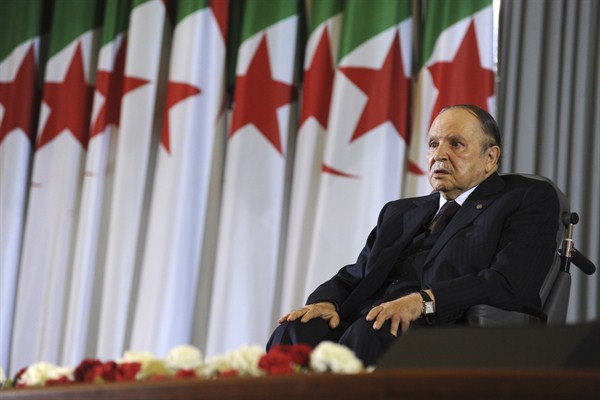On Sept. 13, Algerian President Abdelaziz Bouteflika announced the retirement of Gen. Mohamed “Toufik” Mediene, head of the Department of Intelligence and Security (DRS), days after sacking several top generals who worked under Mediene and weeks after the arrest of a former intelligence chief. Bouteflika’s office claimed that the retirement decision was made “in line with the constitution.” But that muted explanation belied the stunning decision to remove Toufik, as he is widely known in Algeria, who has been the head of Algeria’s state intelligence service for 25 years.
Created in 1958 during Algeria’s War of Independence as the Ministry of Ammunitions and General Liaisons, the DRS soon became the country’s main internal security force, especially after the failed coup attempt led by Chief of Staff Tahar Zbiri in 1967 against Houari Boumediene. Through its networks, the DRS permeated public debates, penetrating the civil service, universities, the police and even the ruling National Liberation Front (FLN). It played a key role in co-opting elites, as well as repressing opponents of the regime. Heading this organization for a quarter of a century, Mediene played an active role among what came to be known as the “Janvieristes,” the generals who canceled the second round of legislative elections in early 1992 in order to avoid an overwhelming victory by the Islamic Salvation Front (FIS), an Islamist political party, setting off a decade-long civil war.
Mediene was considered to be Algeria’s undeniable strongman and the power behind Bouteflika’s throne. Yet the “God of Algeria,” as he called himself, had never appeared in public until Sunday, when a local television channel broadcast footage of him talking to senior military officials. His removal signals major shifts within Algeria’s opaque power structure, which has exhibited surprising signs of public tension in recent years, as a battle to succeed Bouteflika looms.

